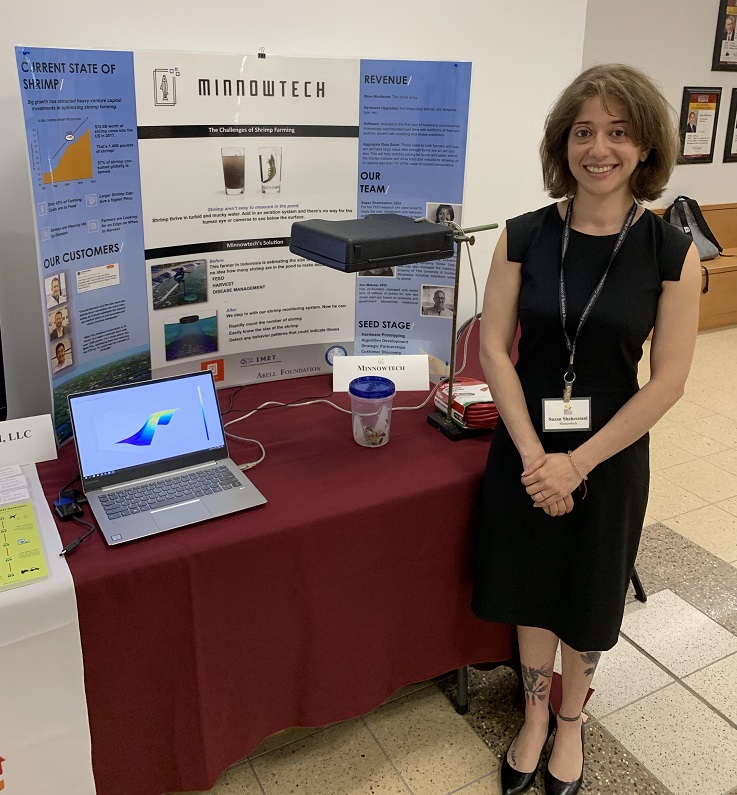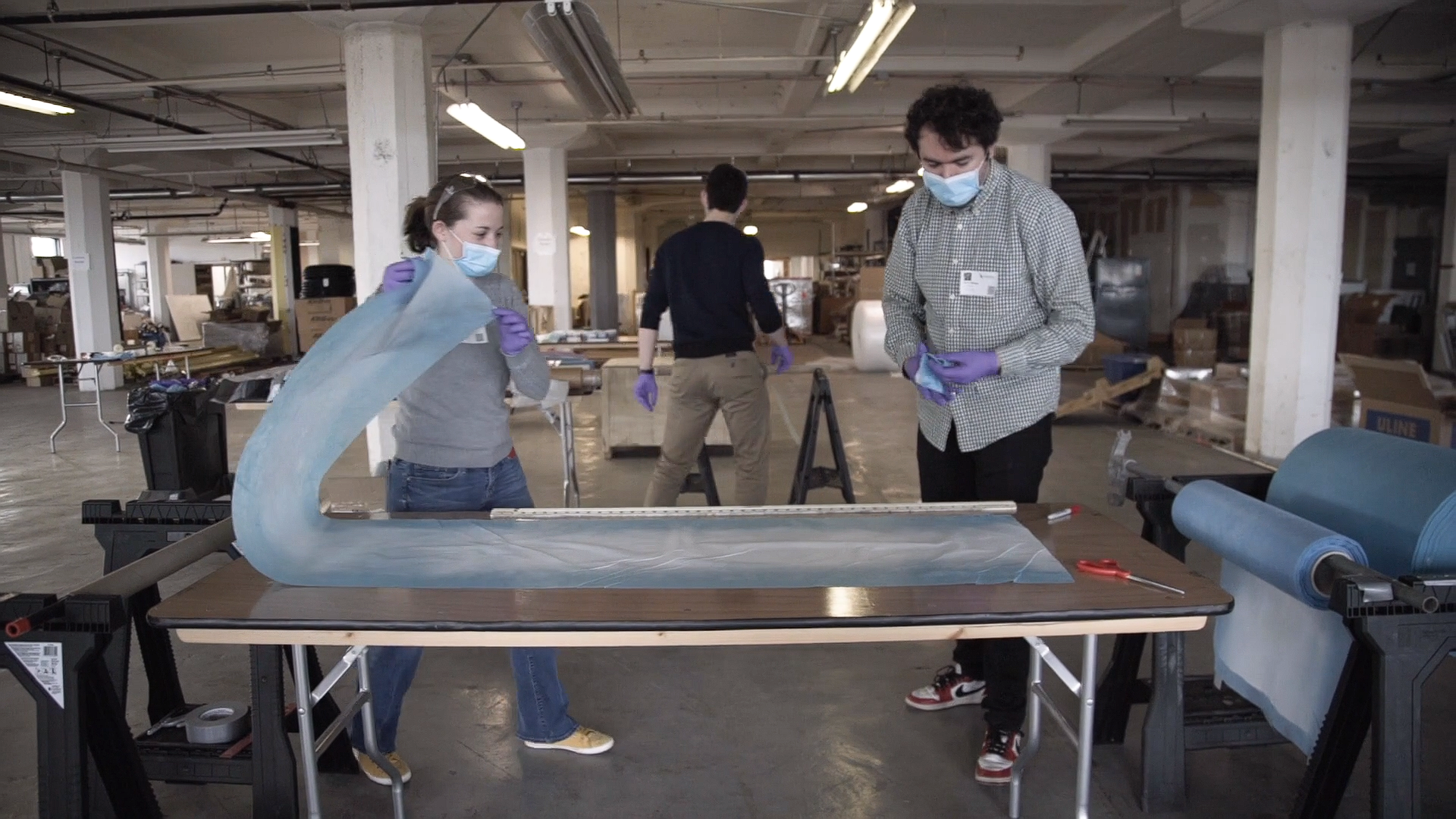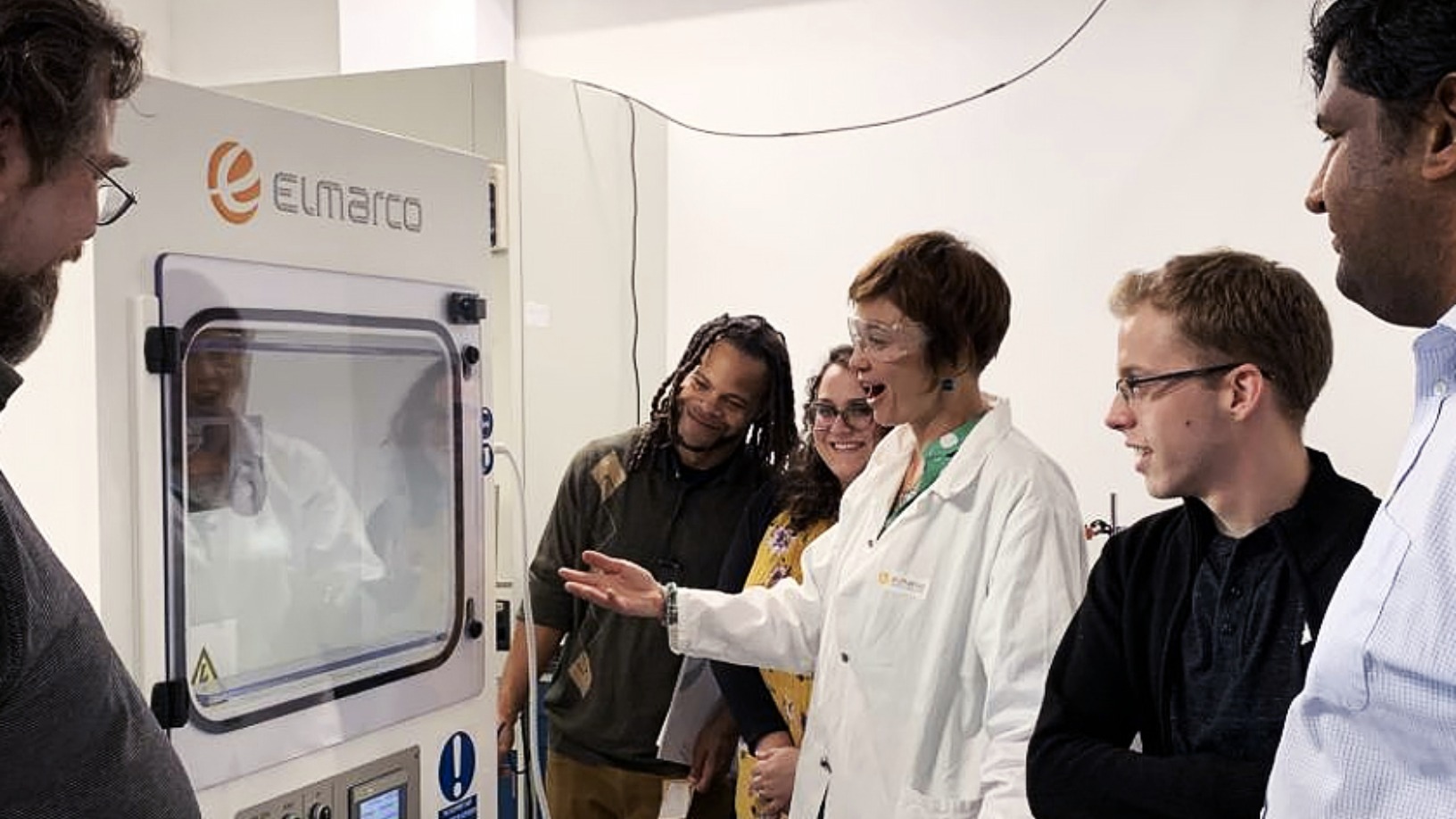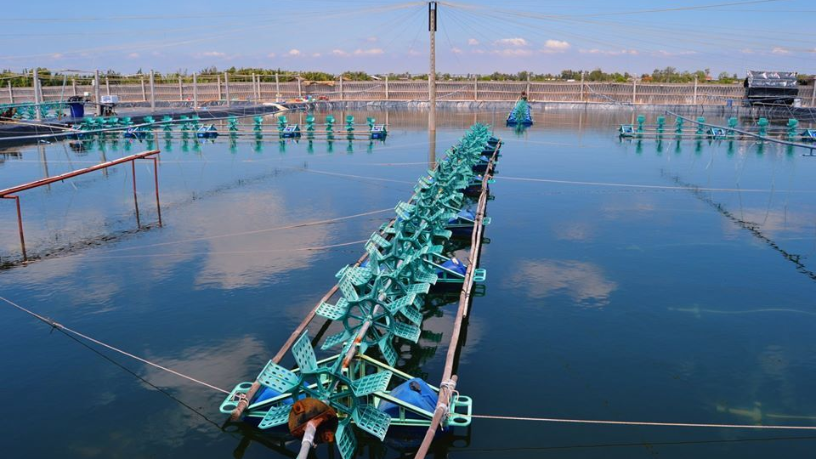In the tech startup world, any firm that has the word “ventures” in its name is usually linked to venture capital or private equity. Early Charm Ventures (ECV), however, calls itself a “venture studio." Instead of investing money for financial returns, the Baltimore-based firm builds and co-runs startups, specifically, in deeptech.
The firm’s projects revolve around the network of scientists and inventors from US universities and research centers that it has built since its founding in 2012. These are the same talent who co-found and build the companies that become part of ECV’s portfolio, seeking to turn key research findings and new intellectual property into viable businesses.
Husband-and-wife team Ken Malone and Kelli Booth founded ECV because they felt the work of researchers in universities and institutions were not achieving their full potential in the real world. Malone has a PhD in polymer science, while Booth has worked extensively in technology transfer and research commercialization.
“We have far too many amazing scientists producing results that just never see the light of day,” Principal Adam Van Dyke said in a Skype interview, “because they do not have the machinery, the personnel behind them, to make it in the non-academic space.”
To date, ECV has built 11 companies across four focus verticals: drug design, custom materials, aquaculture and machine vision. Some of the companies are already profit-making, which helps provide cash flow for the studio to keep running.
The Baltimore connection
Malone and Booth saw the opportunity to commercialize institutional research work and create value in the market. Universities have robust frameworks to protect their faculty’s intellectual property, Van Dyke said. They are also encouraged to transfer technology and inventions into the commercial space, thanks to the Bayh-Dole Act protecting the results of federally funded research.
The ECV team settled in Baltimore, strategically seating themselves in a concentration of talent and infrastructure. Renowned institutions of research such as Johns Hopkins University, University of Maryland and the University of Philadelphia, as well as the network of National Institute of Health research centers, are within close reach.
ECV taps into this network to find new technologies with market potential, and the researchers behind them, to bring those technologies to the commercial space. For example, Vikram Vakharia, a molecular virologist at the Institute of Marine and Environmental Technology, is the chief science officer for fish feed additive startup VakSea. Van Dyke, who handles business development for VakSea, is a neuroscientist.
From lab to life

ECV does not put any money into its portfolio companies, but taps a variety of funding sources, mainly grants, accelerator programs, angel investors and loans. Some of these grants come from the US government’s Small Business Innovation Research program and the Maryland Technology Development Corporation. Early Charm Ventures itself raised initial funding from the Robert W. Deutsch Foundation, which supports businesses and initiatives in Baltimore.
Correspondingly, ECV does not derive income from its portfolio, but from charging the companies management fees for providing business services, administration fees from grants received, and rent from providing office space.
“By sharing human capital across various companies, we are able to keep overheads as low as we need to, while also maintaining positive cash flow to pay the employees and maintain our portfolio,” Van Dyke said.
The ECV startups often don’t require the scientists or inventors of their technologies to work full time. Most are tenured professors or hold other roles in the universities where they work, an arrangement they usually want to retain. That’s not a problem for ECV, Van Dyke said.
“At the early stage, you're doing a lot of business building, and not a lot of scientific work,” he added, noting that it’s precisely the sort of work that the studio handles. “Once you get past that initial establishment, you actually need to leverage those systems that you've raised into doing additional scientific work.”
Even when the startup gets to a more advanced stage, the R&D process still won’t always require a tenured professor at the helm, Van Dyke said. But it does require guidance from someone of that caliber – and that’s what ECV provides, through its network of scientists and engineers. The ECV team of founders and portfolio managers themselves come from scientific research backgrounds; the company also lists eight scientists as venture partners.
ECV’s aquaculture startups
After investing in startups “opportunistically” in its early days, ECV refined its focus to the current four verticals, across which portfolio companies could benefit from brainstorming and collaborating with one another. Van Dyke, who manages the aquaculture portfolio, gave the examples of two companies that he co-runs: Gaskiya Diagnostics and VakSea.
Gaskiya Diagnostics produces testing kits that can detect fish diseases in fish farms, while VakSea produces food supplements that boost the immune response of fish and other farmed aquatic animals. “These two platforms are going after the same pathogens, and they can share resources and knowledge,” Van Dyke said.
He also highlighted Minnowtech, which helps shrimp farmers accurately estimate the number of shrimp in a farm population. Shrimp are farmed in turgid water conditions, and currently farmers can only take small samples to estimate the number and biomass of shrimp in their ponds. With Minnowtech’s sonar technology, they can get estimates with 94% accuracy compared with the actual harvested amount of shrimp.
Some of the companies in the ECV portfolio are already generating sales, with a few actually profitable. Most of these companies are in the custom materials portfolio, which Van Dyke declined to comment further on as it is outside his purview. These companies earn revenue through production of their own products, as well as through providing expert services or contract research capabilities to enterprise clients.
But other ECV companies, such as a handful in drug design, will still be in cash burn mode until they get acquired. In the meantime, they will have to raise venture capital funding. Van Dyke said this is natural, as it is usually not feasible for small companies to produce enough of the new drugs to commercialize. The drug design process takes a long time, as well as requires massive resources and experience, to the extent that only major pharmaceutical firms can bring new drugs to market.
Responding to Covid disruptions

The Covid-19 pandemic and the ensuing economic uncertainties have been a cause of concern for many startups and investors. As a company that co-runs various startups, ECV has seen a drop in the number of interested investors, as well as lower deal values.
“While our companies are built to be investment-worthy, the number of people willing to invest and the value of checks they are writing have decreased. There’s a lot of economic instability and uncertainty over what’s going to happen next,” Van Dyke said.
However, ECV’s portfolio companies are adapting well, he said. Some in the materials portfolio temporarily converted their manufacturing facilities to produce face shields and other personal protective equipment, riding on the sudden spike in demand from the healthcare industry. For example, DiPole Materials, a company that produces electro-spun fibers for various purposes, shifted their manufacturing capacity to produce mask filters.
As for its aquaculture companies, demand for their products did slow, but soon returned to normal. Van Dyke said: “There was a slowdown as people were trying to figure out what to do, especially in terms of social distancing. But the good thing about this sector is that you tend to work away from people, unlike in office jobs. And the farmers have to return to work, the animals can’t be left unattended.”
Beyond Baltimore
Current uncertainties notwithstanding, ECV plans to keep growing by staying on course, leaning on their human capital advantage. The venture studio wants to have 50 companies under their wing in the next five years. They currently have 11, and Van Dyke believes the goal is within reach at their current pace.
Specifically for the aquaculture vertical, Van Dyke said that ECV is open to opportunities from outside of the US. There are many regions where aquaculture commands a higher priority, whether for historical or more forward-looking reasons.
“In the case of Southeast Asia, there is the traditional fish farming industry, while in Norway fish farming is a priority because of a lack of land to utilize for food production. In Scotland, there’s an awareness that something needs to be done to drive innovation, in order to meet the challenge of getting food in a sustainable way," he said.
“Our goal is to continue to grow, because the ideas don’t stop and there are many problems to be solved. Addressing this gap is what allows us to continue to do what we do. The more people hear about us, the more conversations we can have, and the more opportunities we are able to assess and execute on.”











